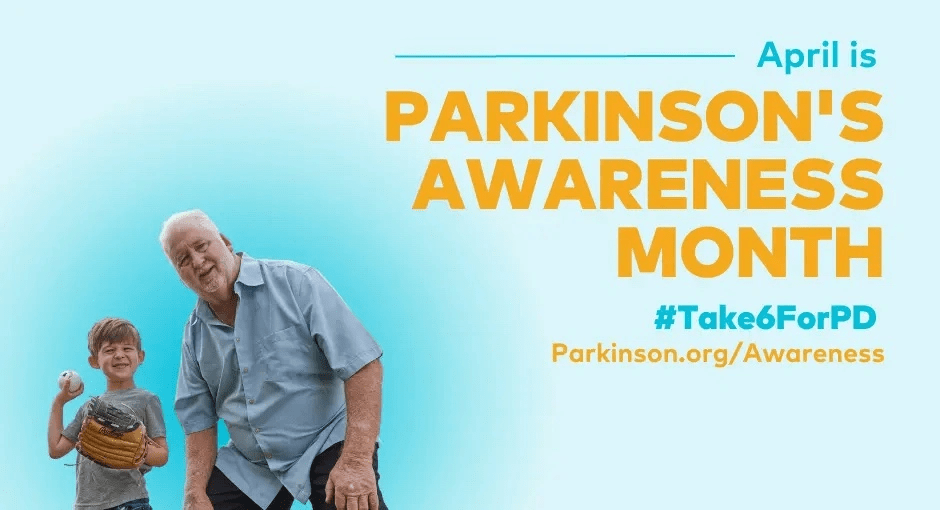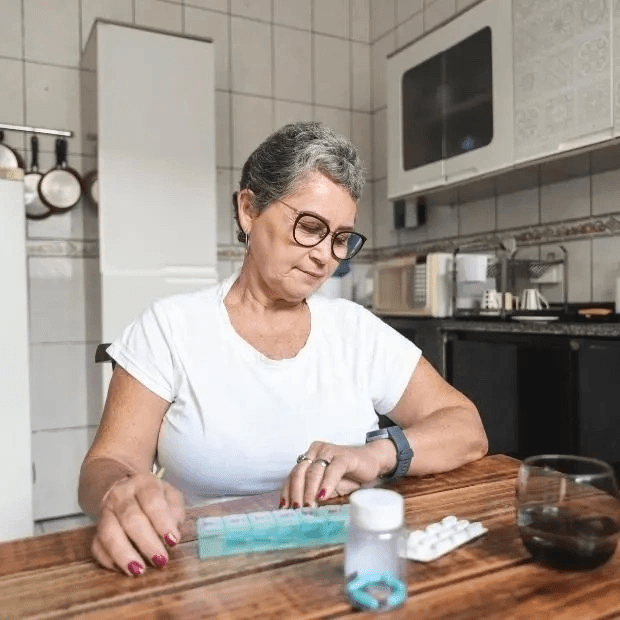Every six minutes, one American is diagnosed with Parkinson’s disease (PD), adding up to more than 90,000 people each year. In the U.S., it’s estimated that 500,000 are currently living with this condition, but due to the difficulties with diagnosing it, experts believe that number is actually closer to 1 million.
After Alzheimer’s, Parkinson’s is the second most common neurodegenerative disorder in the U.S. Each April, we celebrate Parkinson’s Awareness Month, so let’s #Take6ForPD and spend some time today learning more about this disease and how to support those living with it and their doctors.

PD is a neurodegenerative disorder that affects the dopamine-producing neurons in the substantia nigra, which is the part of the brain that controls our movement. The condition causes these neurons to die or become impaired, and those with PD will start to lose control over their movement.
The condition manifests in symptoms like hand tremors, slowed motions, stiffness, and gait and balance problems. Non-motor symptoms include depression, anxiety, sleep disorders, loss of smell, apathy hallucinations, and other cognitive impairments.

When it comes to understanding the cause, it’s still widely unknown, but there is the belief that it is a combination of genetics and environmental factors. Ten to 15% of cases are caused by genetics, while things like pesticides, head traumas, and mutations are linked to PD.
Just because there is no known cure doesn’t mean there aren’t effective treatments. There are two main options: medication to increase or substitute dopamine levels and surgical options like Deep Brain Stimulation.
Doctors also encourage their patients to implement various lifestyle changes like eating a healthy diet, exercising regularly, and getting enough sleep.

When it comes to celebrating Parkinson’s Awareness, it is not just important to understand what the disease is and how it functions, but it is just as important to listen to PD patients and hear their stories. One patient, Margie Alley, shared her story with The Parkinson’s Alliance to show her trials, tribulations, and, more importantly, her resiliency.
When reflecting on her diagnosis and how her life has changed, Alley says that the sooner you can come to terms with your diagnosis, the better you’ll feel. Although it felt like she was losing control of her body, embracing exercise and honoring her body’s needs shifted her perspective on her diagnosis. Remembering that each day is new helped her shrug off the pains of bad days and have a more positive outlook on the future.
While April is Parkinson’s Awareness Month, there is still much to do to end the disease. Check out the Parkinson’s Foundation’s website for ways to continue to help the cause all year.






